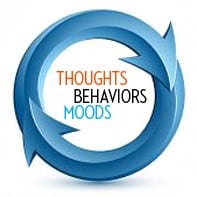There are 6 basic types of social power that influence others…which type are you?
If you have ever wondered why some people seem to be more effective at influencing the opinions and behaviors of others, consider the social power possessed by the “influencer” and the role-identity of the “followers”.
Social power can be thought of as simply reasons why one person can get others to do what he wants to. There are six basic types of social power:
1. Reward power is when the holder of the power has the potential to dole out either material or social rewards. Attention, affection and sex fall into this category. So do bonuses, salary and gifts.
2. Coercive power exists when others comply to avoid any type of punishment. This can be a time out, public humiliation (gossip), social discord, a verbal or physical reprimand, financial penalties, jail, etc.
3. Legitimate power is based on the notion of “it just is”. Whereby, someone responds to someone’s request simply because they are a designated as an authority figure such as “teacher”, “leader”, “parent”, or “boss”. Followers respond to their requests just because they are “supposed to”.
4. Referent power is often combined with Legitimate Power when you like or admirer your boss or teacher. The power to influence comes with being admired and respected, when the person wants to be like you or wants to be held in high regard in return.
5. Expert power is when someone has superior skills or training so followers comply with their requests because they assume they know more and can lead others towards better decisions. This can obviously apply to situations at the office or when consulting with advisers, such as doctors, lawyers or accountants, but it also comes into play in more subtle situations. For example, we may defer to someone’s lead simply because they are more familiar with the place, people or situations than we are. This occurs in social setting where new comers often look for experienced members to “show them the ropes”, thus temporarily one person is deemed the expert and assumes that role.
6. Information Power is when someone posses a specific piece information that we see as valuable. Thus we follow their requests in order to get them to share the information we are looking to obtain.
Role identity is basically how people want to be seen in a given situation. This translates into what motivates them. For example, a 30 year-old, single female attending a social engagement who wants to be seen as sexy, attractive and articulate to men would respond positively to the reward power of a compliment from a viable suitor since it would validate her role-identity. So in order for the compliment to be powerful in its ability to influence it must be seen as valuable enough by the followers to warrant the required behavior.
Persuading others is not always easy, in management or leadership situations if you are liked (referent) and seen as a skilled /knowledgeable (expert) you will have the power to influence the performance and opinions of others since referent power combined with expert power in leadership roles tend to be the most effective.
Please comment here on the blog what types of power you think work best for you and it what situations. 🙂
Dr. Jayme

















What type of power do you think is best for you? What situations?
Your six basic types are absolutely correct. In fact, I look at them at an inverted pyramid where one depends heavily on another. For instance, we need to start with informational power. Once we step out and share the knowledge we know we will eventually become experts and then the referent and legitimate power follows. If one is honest and sincere in their motives, coersive power should never be an option, except for rare cases and professions. I want to believe that most of humanity, hope to bring benefit and health to the world. Reward power can help us to achieve great things for our world but should never be our ultimate goal, and yet be our reward for honest efforts.
What type of power do you think is best for you? What situations?
Your six basic types are absolutely correct. In fact, I look at them at an inverted pyramid where one depends heavily on another. For instance, we need to start with informational power. Once we step out and share the knowledge we know we will eventually become experts and then the referent and legitimate power follows. If one is honest and sincere in their motives, coersive power should never be an option, except for rare cases and professions. I want to believe that most of humanity, hope to bring benefit and health to the world. Reward power can help us to achieve great things for our world but should never be our ultimate goal, and yet be our reward for honest efforts.
I would say I fluctuate between referent, legitimate and expert power in my work life.
I would say I fluctuate between referent, legitimate and expert power in my work life.
Good morning or afternoon
Interesting post and one I would like to add to, “Power” is only a label attached to actions that typically come from state, your article doesn’t go deep enough as you only mention 6 “types” of power with no explanation behind why some do or don’t apply their power, which is typically learned behaviour.
I am of the view that every single perosn on this planet has all six sources and will use them depending on their situation, preferrences and learned behaviours – and any learned behaviour as you know can be unlearned.
Your article also doesn’t discuss or mention why it’s important to know why understanding power can vital – especially for people who are victims or even more importantly perpetrators / abusers of power. If they know they are doing it they may still do it but at least you reduce the probability..(or you would hope so) plus there is no excuse for ignorance.
Great to raise the awareness – understanding power should be taught in schools at the EARLIEST opportunity and continually revisited – there is simply no excuse for the abuser of power and yet we live in a society that is riddled with it – and we encourage it through media etc.
Good article
All the best
Phil (England)
Thanks for your thoughts and comments. I will write a follow up post but keep in mind the articles are meant to be thought provoking and not nec thorough on the topic. They are meant to introduce concepts and techniques to get you thinking.. so I guess I am doing my job!!! keep reading and posting comments and I will keep writing. Best Dr J
Good morning or afternoon
Interesting post and one I would like to add to, “Power” is only a label attached to actions that typically come from state, your article doesn’t go deep enough as you only mention 6 “types” of power with no explanation behind why some do or don’t apply their power, which is typically learned behaviour.
I am of the view that every single perosn on this planet has all six sources and will use them depending on their situation, preferrences and learned behaviours – and any learned behaviour as you know can be unlearned.
Your article also doesn’t discuss or mention why it’s important to know why understanding power can vital – especially for people who are victims or even more importantly perpetrators / abusers of power. If they know they are doing it they may still do it but at least you reduce the probability..(or you would hope so) plus there is no excuse for ignorance.
Great to raise the awareness – understanding power should be taught in schools at the EARLIEST opportunity and continually revisited – there is simply no excuse for the abuser of power and yet we live in a society that is riddled with it – and we encourage it through media etc.
Good article
All the best
Phil (England)
Thanks for your thoughts and comments. I will write a follow up post but keep in mind the articles are meant to be thought provoking and not nec thorough on the topic. They are meant to introduce concepts and techniques to get you thinking.. so I guess I am doing my job!!! keep reading and posting comments and I will keep writing. Best Dr J
Interesting piece: I haven’t read much on power and influence lately, I should probably fix that.
Personally, I find myself using reward power more often than anything else. Specifically, I use social rewards like attention, warmth and the like to reward behaviors I find desirable.
I use expert power to a lesser extent.
I think the most important aspect of selecting the type of power to use is to understand your persuasion target. Some individuals will not respond to expert power, nor will they respond to the type of reward power I can offer… Let’s just say I am not in a position to “make it rain.” In situations like these, I pretty much understand that my ability to influence is limited; my time is better spent attempting to influence someone else.
Thanks for the insightful responses. Your comment “I think the most important aspect of selecting the type of power to use is to understand your persuasion target. Some individuals will not respond to expert power, nor will they respond to the type of reward power I can offer” is right on target. You are raising the issue of the audiences’ role identity which I will address in detail in a future post, but in essence it is the identity that your audience gravitates toward and thus will respond to the influences from other that emphasize that identity for them. Thanks for following. Dr Jayme
Interesting piece: I haven’t read much on power and influence lately, I should probably fix that.
Personally, I find myself using reward power more often than anything else. Specifically, I use social rewards like attention, warmth and the like to reward behaviors I find desirable.
I use expert power to a lesser extent.
I think the most important aspect of selecting the type of power to use is to understand your persuasion target. Some individuals will not respond to expert power, nor will they respond to the type of reward power I can offer… Let’s just say I am not in a position to “make it rain.” In situations like these, I pretty much understand that my ability to influence is limited; my time is better spent attempting to influence someone else.
Thanks for the insightful responses. Your comment “I think the most important aspect of selecting the type of power to use is to understand your persuasion target. Some individuals will not respond to expert power, nor will they respond to the type of reward power I can offer” is right on target. You are raising the issue of the audiences’ role identity which I will address in detail in a future post, but in essence it is the identity that your audience gravitates toward and thus will respond to the influences from other that emphasize that identity for them. Thanks for following. Dr Jayme
Dear Dr Jayme,
Thanks a lot for your great outline of these six bases of power. I really appreciate your well-written and easy to understand article about so huge and complicated thing as power typology by French and Raven. I have just started studying this topic in the university and would be grateful if you help me with one question: what base of power (or combination of bases) do you think is mostly used by influential bloggers? And why?
Thank you very much for your attention in advance.
Sincerely,
Irina.
I would say a combination between Expert power and information power. Overtime as the blogger gains more recognition she/he will then start to tap into referent power where readers might find themselves saying “so and so would be proud of this choice” or “what would Dr J think is the best way to handle this?”
Dear Dr Jayme,
Thanks a lot for your great outline of these six bases of power. I really appreciate your well-written and easy to understand article about so huge and complicated thing as power typology by French and Raven. I have just started studying this topic in the university and would be grateful if you help me with one question: what base of power (or combination of bases) do you think is mostly used by influential bloggers? And why?
Thank you very much for your attention in advance.
Sincerely,
Irina.
I would say a combination between Expert power and information power. Overtime as the blogger gains more recognition she/he will then start to tap into referent power where readers might find themselves saying “so and so would be proud of this choice” or “what would Dr J think is the best way to handle this?”